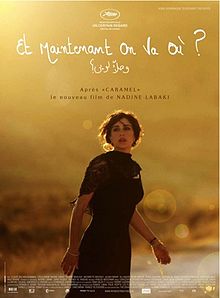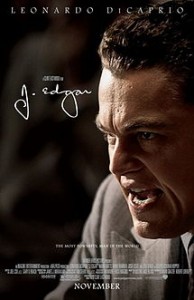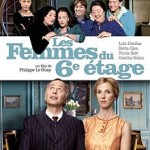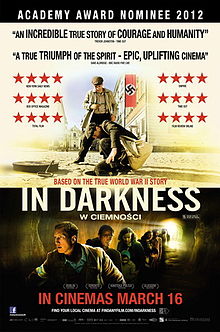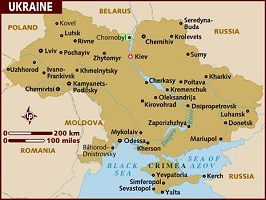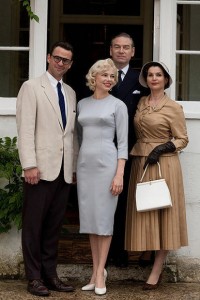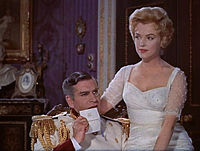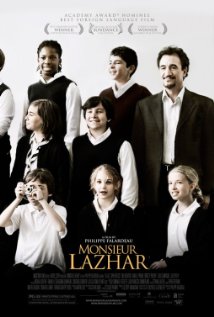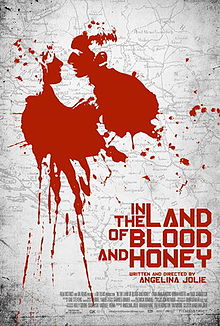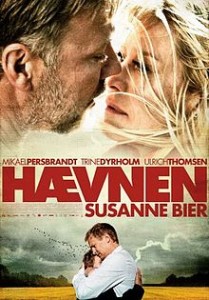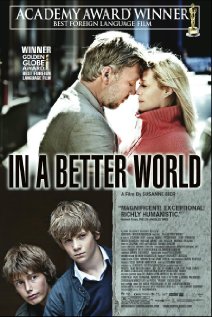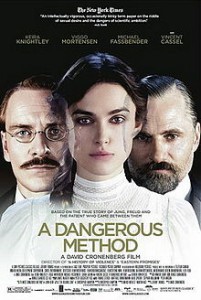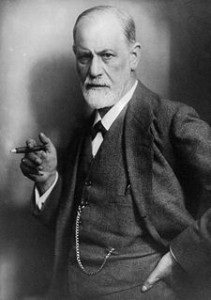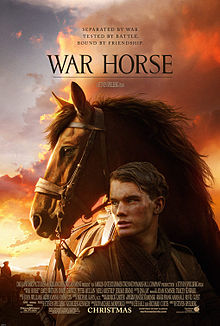 War Horse is director Steven Spielberg’s 2011 movie adaptation of a play that got favorable reception in London theatres, War Horse Joey, which was based on Michael Morpurgo’s children’s novel published in 1982 and adapted for stage by Nick Stafford in 2007. At the London premier of this movie, Prince William, Duke of Cambridge, and Princess Catherine were in attendance. Steven Spielberg’s exquisite storytelling and flawless direction of key points for viewers to cry, as well as careful calculation of the beautiful images from start to finish reminds me of Akira Kurosawa’s ability.
War Horse is director Steven Spielberg’s 2011 movie adaptation of a play that got favorable reception in London theatres, War Horse Joey, which was based on Michael Morpurgo’s children’s novel published in 1982 and adapted for stage by Nick Stafford in 2007. At the London premier of this movie, Prince William, Duke of Cambridge, and Princess Catherine were in attendance. Steven Spielberg’s exquisite storytelling and flawless direction of key points for viewers to cry, as well as careful calculation of the beautiful images from start to finish reminds me of Akira Kurosawa’s ability.
People affected by the war from Britain, Germany, and France are all depicted in this movie in connection to a single horse: The horse owned by a British boy who lives on a farm is sold for use in war to a British army commander who dies in battle; German boy soldiers are executed for deserting; the farm where a young French girl and her grandfather live after her parents were killed is ransacked. To put it in another way, the movie uses the beautiful animal called a horse to its maximum potential to attract the audience, while the human characters around it just conveniently appear and die for the story.
What I thought was most interesting in this movie was the background message about the revolution in war technology; that is to say, after World War I ended, cavalry disappeared and horses became useless in war. This is interesting even though Spielberg did not make this movie to convey this message.
Historically, cavalry has been regarded as an important branch in military tactics. The high speed on horseback that allows troops to move together as well as the strong aggression of horses made them useful for a wide range of things including surprise attacks, charging in, pursuit, rear attacks, flank attacks, or surrounding the enemy. In addition, they were effectively used to scout out enemy camps. The cavalry approached the height of their prosperity during the Napoleonic Wars in the early 19th century and the charge by the cavalry running through the battlefield greatly contributed to Napoleon’s victory. However, in 1870 with the start of the Franco-Prussian War, the French cavalry was completely crushed by the Prussian army’s overwhelming firepower and the French army was defeated.
This is the background to the introduction of new weapons. The use of machine guns and rifles started with the U.S. Civil War (1861 to 1865) and trenches were dug in order to protect the body; with this, war had changed from being a battle between individual warriors to a battle between masses. Charging in on horseback made you an easy target for your opponent; furthermore, facing a war of attrition with a no man’s land between made it so that it was no longer the time to stride in on a horse. Considering the cost to maintain a horse, the cavalry had become a high cost, low success tactic. Even though knowledge of modern warfare and machine guns is hammered in, the commanding officers of the British army, being noble in origin, deep down in their hearts were still old-fashioned and still had an admiration for knights riding on horseback and bravely fighting with honor in their minds. Therefore, this movie realistically depicts the surprise attack on and annihilation of the British cavalry by the German army that had completely modernized with machine guns.
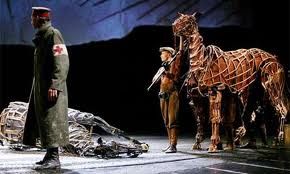 The horse, elephant, and camel have been friends of mankind from ancient times due to their ability to supply valuable manual labor. These creatures are very intelligent and, once a trust is built with their owner, they are very loyal. While normally calm, if these animals get angry, they show great strength. Horses and dogs will remain as lifelong friends for man. Although many cried over the horse in this movie, I was not drawn into the story throughout the movie. I will state the reason.
The horse, elephant, and camel have been friends of mankind from ancient times due to their ability to supply valuable manual labor. These creatures are very intelligent and, once a trust is built with their owner, they are very loyal. While normally calm, if these animals get angry, they show great strength. Horses and dogs will remain as lifelong friends for man. Although many cried over the horse in this movie, I was not drawn into the story throughout the movie. I will state the reason.
First of all, in order for the horse to be the main character, the depictions of the supporting characters are shallow or sometimes incomprehensible. The young boy’s father purchased the horse at an auction because he stubbornly did not want to be outbid by his own landlord and thus had to buy the horse at a very steep price. But this drives the family to a point where they cannot pay off their debt, and the father decides in a fit of anger to shoot and kill the horse he bought himself. Because the horse is introduced with this very unrealistic scene, it is impossible for me to feel sympathy for the horse even if the horse gives a beautiful performance. The military did not force the horse to serve in the army, but rather the father just sold the horse in order to pay off his debt. This is just one example, but throughout the movie, the characters are depicted as shallow. The scene where opposing German and British soldiers on either side of no man’s land momentarily make peace in order to rescue a horse closely resembles Joyeux Noël because of the theme. But in Joyeux Noël, this peace is the main theme of the movie and the consequences are depicted in detail, while in War Horse, this story is one of many episodes and it feels very abrupt. Even though many injured soldiers were taken to the field hospital and it was overflowing with human soldiers, the military physician says, “I will do everything I can to rescue horses,” but instead of bringing tears, I just thought, “Why?”
Secondly, this movie becomes confusing when, even though characters are from Britain, Germany, and France, everyone talks in English. The German commanding officer speaks German when yelling commands to soldiers, but the marching soldiers talk in English, which makes me think, “Oh, are these German soldiers British prisoners of war?” Since the army that pillaged the French farm also spoke English, I was surprised that they would mistreat these French people who were allies to the British army, but then according to context, I realized it must actually be a German army. The reason Spielberg let everyone speak English must have been because he aimed for this movie to be a success in America. Americans do not like foreign films with subtitles. This may be difficult for Japanese people to understand who prefer subtitles over dubbing and think that hearing the actual voice of the actors talking in foreign films helps capture the subtle meaning, but I believe this to be true after reading American movie discussion sites and seeing many Americans post the complaint, “Why don’t they dub this movie? I don’t feel like watching this movie because subtitles are annoying.” I think there is a feeling by Americans that they are number one in the world (currently) so naturally people around the world will speak English.
 Hollywood movies use music effectively. In this movie, however, the music is certainly beautiful, but I feel as though Spielberg overuses it. Until now, he has successfully collaborated with John Williams and I recognize the strength of the music, but I may have to call this level excessive. Particularly after watching non-Hollywood movies where music isn’t used much, watching this Spielberg movie was almost like being told, “Yes, please cry here,” and I just felt, “Enough, overdoing it!” However, the scene where the soldiers are sent forward with bagpipe music did actually give me goosebumps. This was one moment that I think Spielberg executed very successfully.
Hollywood movies use music effectively. In this movie, however, the music is certainly beautiful, but I feel as though Spielberg overuses it. Until now, he has successfully collaborated with John Williams and I recognize the strength of the music, but I may have to call this level excessive. Particularly after watching non-Hollywood movies where music isn’t used much, watching this Spielberg movie was almost like being told, “Yes, please cry here,” and I just felt, “Enough, overdoing it!” However, the scene where the soldiers are sent forward with bagpipe music did actually give me goosebumps. This was one moment that I think Spielberg executed very successfully.
Furthermore, I am a little annoyed by symbolic tricks. For example, the father of the young boy protagonist is an alcoholic, but, in fact, it becomes clear that he was honorably injured in the Boer War. The young boy ties the pennant for this honor to the horse and the pennant is a symbol for friendship; one after another, it is kept by the horse’s owners until the horse is reunited with the young boy. Whenever I saw the pennant, it was almost as if Spielberg was triumphantly saying, “What great symbolism I came up with.”
The audience’s response is split between something like, “Deeply emotional, moved to tears,” or, “The use of cheap tricks to get you to cry were off-putting.”


